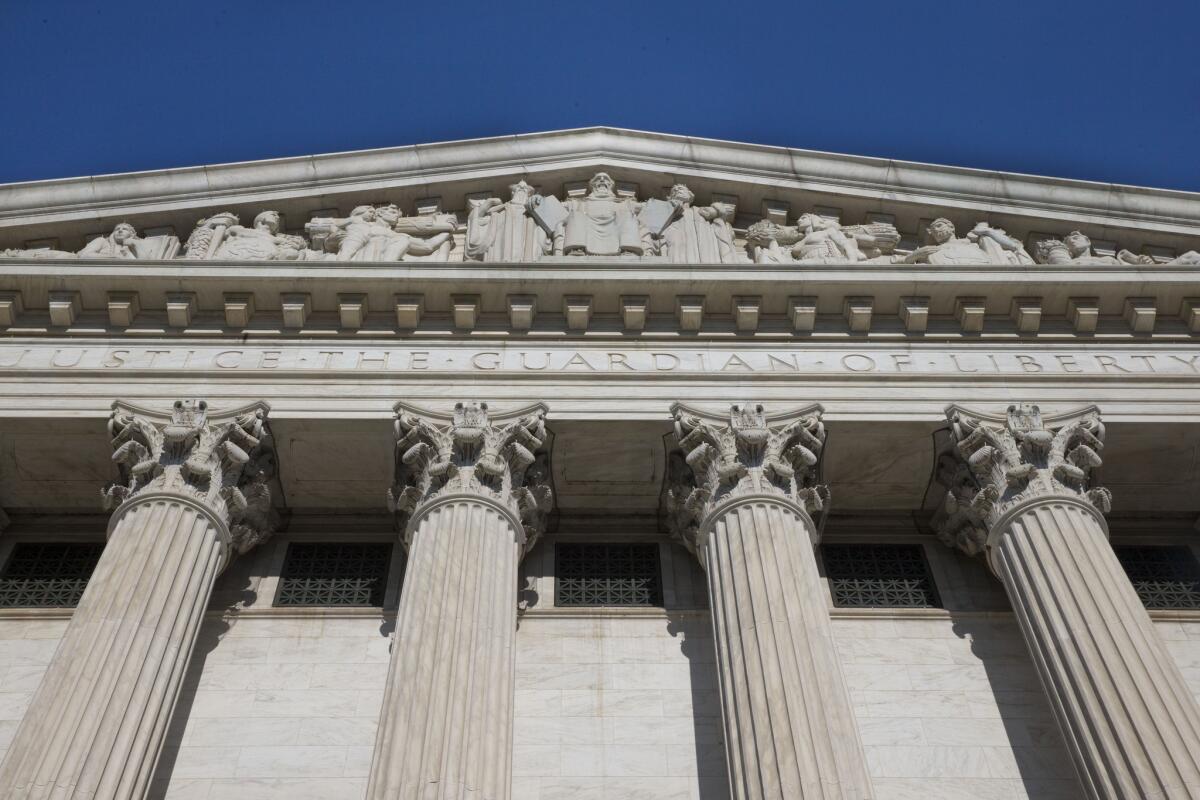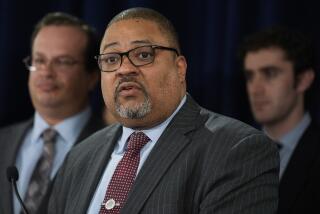Due to coronavirus pandemic, Supreme Court will allow live audio broadcast for the first time

- Share via
WASHINGTON — Responding to the coronavirus outbreak, the Supreme Court said Monday it would hear oral arguments next month over the telephone and allow a live audio broadcast of the proceeding, both for the first time.
The announcement clears the way for the justices to decide by the summer whether President Trump has an “absolute immunity” from being forced to disclose his taxes to a House committee or a New York grand jury.
The health crisis forced the high court to postpone oral arguments on the cases that had been scheduled for March and April. If the justices had delayed hearings on all of those cases until the fall, Trump would have been assured his tax returns would remain confidential until after the November election.
“In keeping with public health guidance in response to COVID-19, the justices and counsel will all participate remotely,” according to a court statement announcing the rescheduled cases. “The court building remains open for official business, but most court personnel are teleworking. The court building remains closed to the public until further notice.”
Most justices have been working from home during the outbreak.
Telephone arguments on 10 pending cases will be held on May 4, 5, 6, 11, 12 and 13, the court said.
The justices have been resistant to introducing technology into their courtroom, such as refusing to allow live broadcasts of proceedings. Monday’s announcement takes a step toward opening the court’s work to the public. In recent years, the court has released audio recordings of its arguments at the end of each week, and on occasion, released an audio recording shortly after an argument ended.
In addition to the Trump tax case, the court said it would decide an urgent matter involving the upcoming presidential election. Lower courts have split over whether little-known state electors — who actually elect the president via the electoral college — have a right to defy the voters of the state they represent and cast their ballot for a different candidate for president.
The court also agreed to decide two groups of cases involving claims of religious freedom. In the first, the court will rule on two school cases from Los Angeles that will decide whether teachers in religious schools are protected from discrimination by the federal civil rights laws. Lawyers for the Roman Catholic Archdiocese say the 1st Amendment shields their schools from liability for firing teachers who carry out religious duties.
The court will also weigh in again on whether church-related employers are shielded from providing or paying for contraceptives for their employees.
More to Read
Get the L.A. Times Politics newsletter
Deeply reported insights into legislation, politics and policy from Sacramento, Washington and beyond. In your inbox twice per week.
You may occasionally receive promotional content from the Los Angeles Times.











